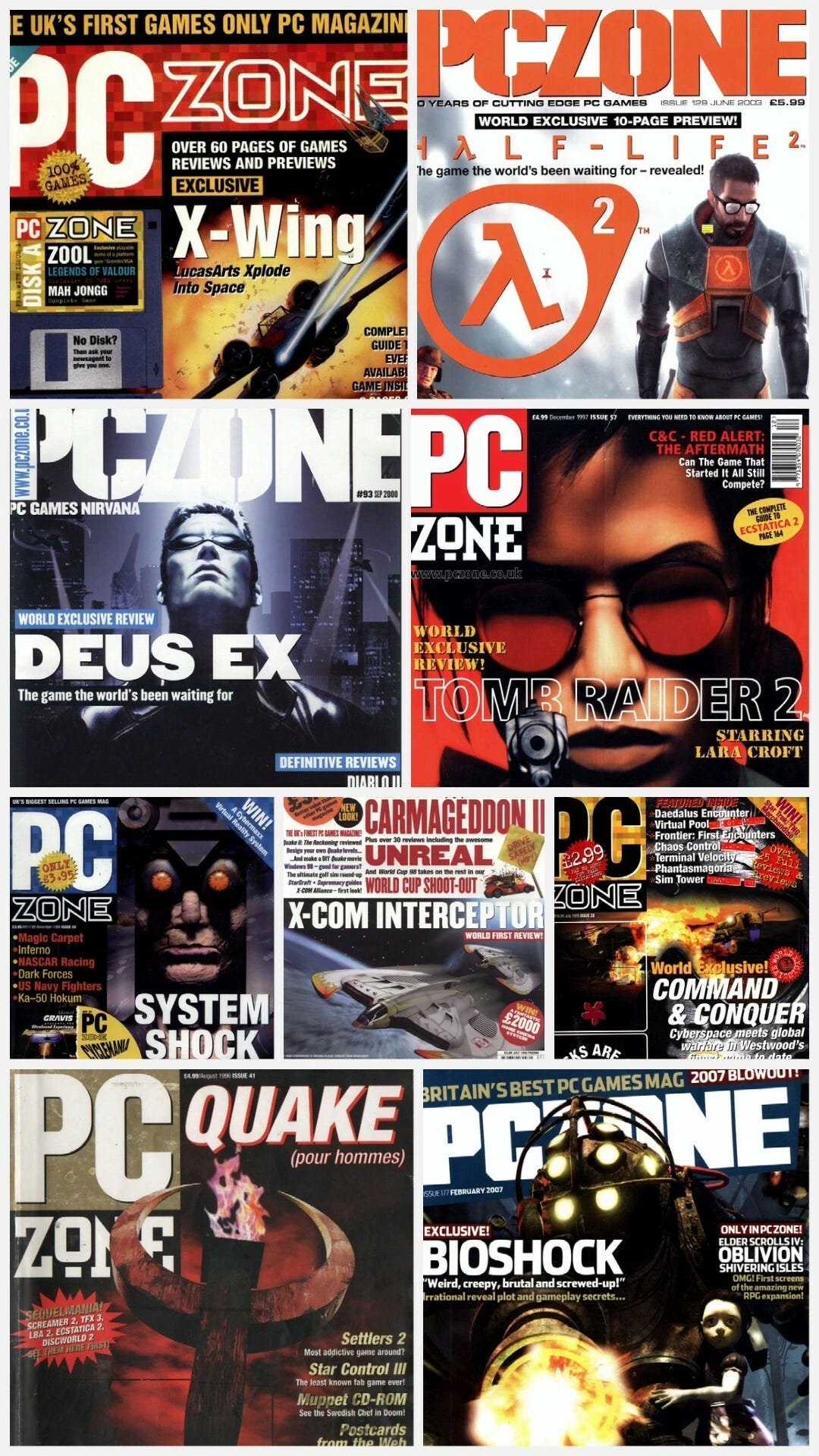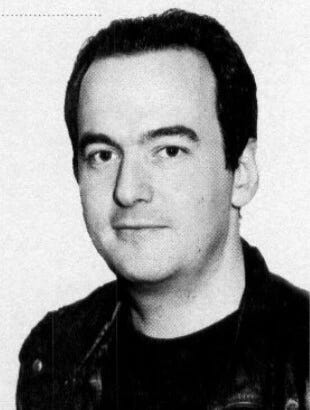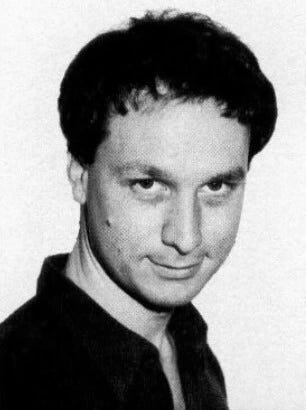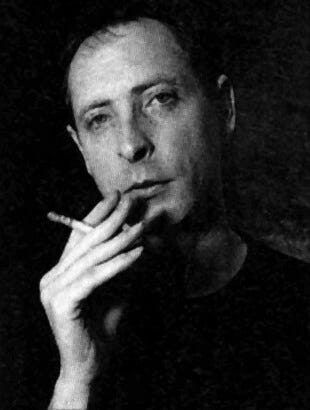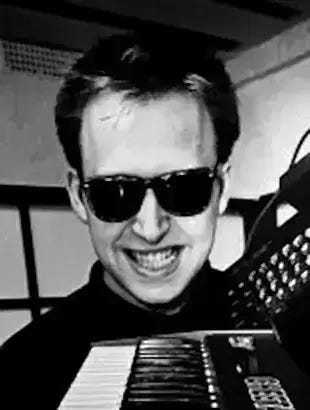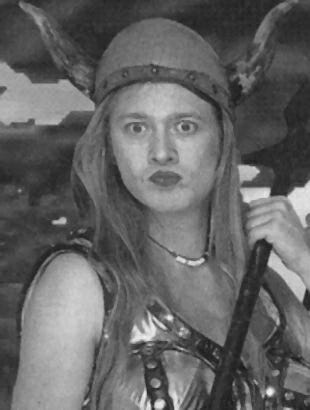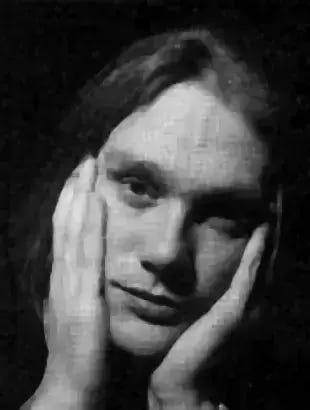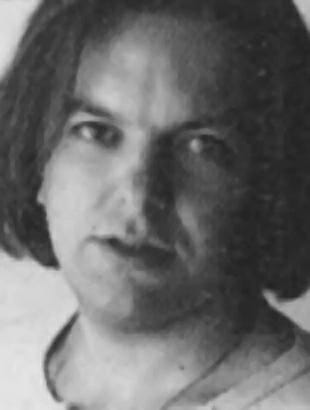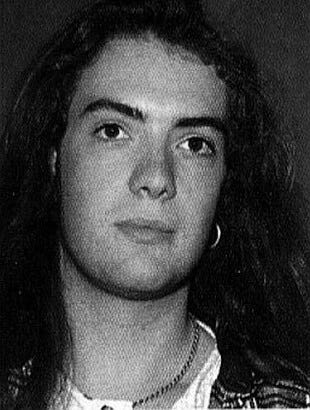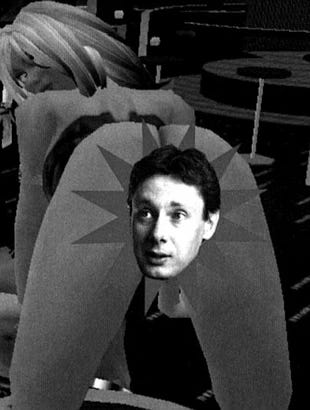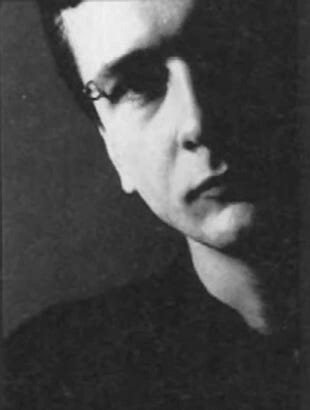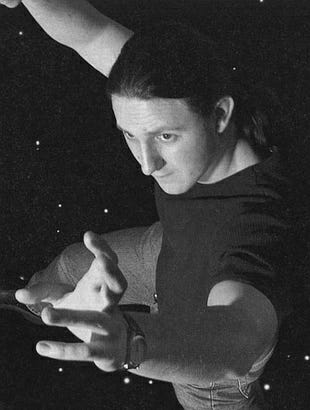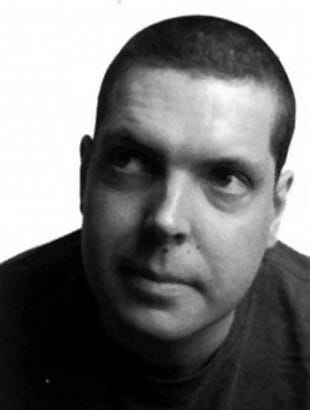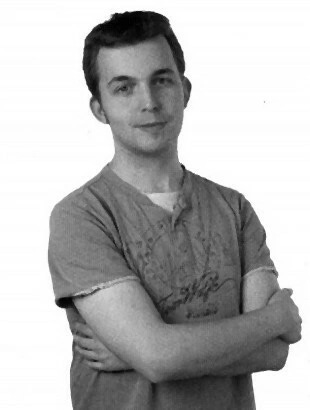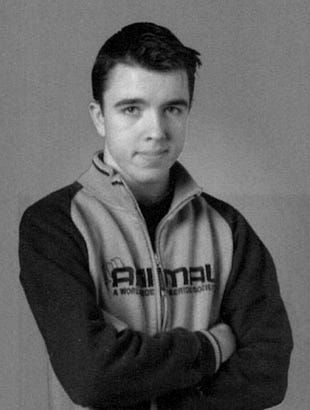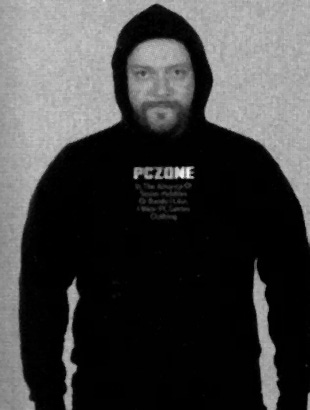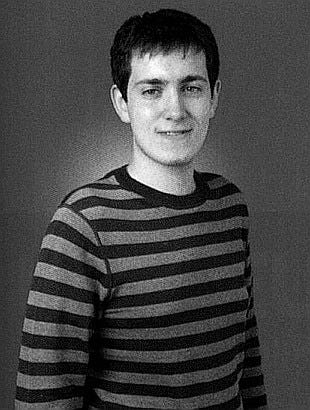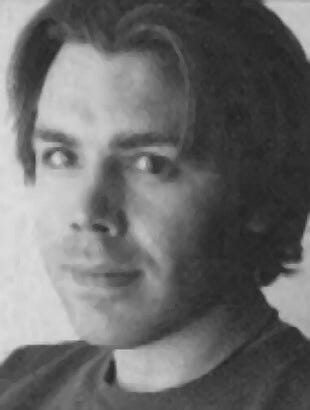PC ZONE LIVES
There's been a desire to keep alive the spirit of PC Zone ever since the magazine was closed in 2010 - a yearning that was given voice whenever the team's remnants met at one of its old drinking haunts. Inevitably, the inclination to start some sort of communal blog would fade with the next day's hangover, and slowly build again in the run-up to the next reunion.
The cycle of hope and despair was finally broken in 2020, when, in the sober surroundings of a lockdown-enforced Zoom call, it was casually suggested by Steve Hill that the team's ramblings be recorded and offered as a podcast. Richie Shoemaker soon volunteered his services and PC Zone was reborn. When at the end of the year news filtered through that Duncan MacDonald would never again be submitting a Mr. Cursor, the need to record PC Zone’s misadventures before any more of its team were taken became even more of an imperative.
PC ZONE MAGAZINE
Conceived by Teresa Maughan (Your Sinclair, Zero) and first published in March 1993 by Dennis Publishing, PC Zone was the first magazine in the UK to be dedicated to PC gaming. It ran for more than 17 years, until the evil empire known as Future Publishing (which acquired PC Zone in 2004), ceased publication after an unbroken run of 225 spooge-encrusted issues.
During its time PC Zone championed a number of games and caused no small amount of controversy along the way. It was among the first publications to champion Doom and the first to review Syndicate, System Shock and Quake. Later, it got behind such seminal titles as Tomb Raider (famously parodied in Lara Croft's Cruelty Zoo), Championship Manager, Grand Theft Auto and Deux Ex, and was the first magazine to reveal Half-Life 2, Call of Duty and Left 4 Dead to the world. Oh, and Daikatana.
Key to PC Zone’s early success was its freelance team, which included Duncan MacDonald, David McCandless, Patrick McCarthy, Paul Presley, Charlie Brooker and Steve Hill. In later years the star writers emerged from the ranks of the editorial team and included the likes of Martin Korda, Rhianna Pratchett, Will Porter, Jon Blyth and Steve Hogarty. At all times the team worked hard to play hard, presenting a love of PC gaming that was uniquely funny and with minimal fucks given.
Despite it being more than ten years since it was in circulation, PC Zone remains one of longest-running UK games mag of all time, after Edge, PC Gamer, CVG, OPM and GamesMaster. Were it still being published today, PC Zone would be first. Dead or alive, it remains the best.
PC ZONE TEAM
PC Zone was famous for its freelancers - mercenary writers that helped establish the magazine's identity as a bastion of desktop-based fun and frivolity. Behind them were the furrowed brows of the editorial staff that decided what went in each magazine, the designers that laid it all out, the production team that made sure everything was done to a high standard (and hopefully on time), and the disk and online editors that managed the coverdisks and website. Overseeing everything was the publisher, who dealt with tedious spreadsheets and angry games publishing executives whenever a review had upset them.
A veteran of Zero magazine, John Belushi lookalike PAUL LAKIN was the former editor of Game Zone, who moved over to launch its PC spin-off in March 1993. After 15 issues he went rogue, remaining part of the freelance team for a couple of years, before working for a time at Channel 4. He then went on to join the Foreign Office, probably as some sort of international spy. (Appears on PC Zone Lives ep1)
Having worked on The One and PC Review at magazine superpower EMAP, wannabe stage hypnotist LAURENCE SCOTFORD tricked his way in the PC Zone basement to join the launch team as deputy editor. He worked under Paul Lakin before taking over the hotseat for just four issues until a move into games production beckoned. Despite the ravages of time, he retains his trademark piercing stare and a voice you could fall asleep to at the snap of his ladylike fingers. (Appears on PC Zone Lives ep1 and ep2)
A veteran of four editors, CHRIS ANDERSON became PC Zone's fifth at the end of 1998 with issue #72. He led the charge towards greater integrity until issue 98, by which time his late-night indulgences in MMORPGs and pub-based hair-tousling had taken their destructive toll. Rather than going quietly into the night, however, Chris remained on call, ready to service his successors with any last-minute review emergencies. (Appears on PC Zone Lives ep1)
A legend of Your Sinclair and Zero, PHIL SOUTH was already games magazine royalty when PC Zone launched in 1993. He didn’t grace many issues, on account of the fact that he had retreated to his west country estate, but he willingly indulged the next generation by regaling everyone with his tales of derring-do in the realms of multimedia and edutainment. (Appears on PC Zone Lives ep2)
A perennial basement dweller who slept under his desk during weekend sessions playing Terris on AOL, disk editor DAN EMERY quickly became notorious for including inappropriate and unauthorised Doom levels on PC Zone's cover CDs. Grabbing the most outrageous costumes from the Supertest dress-up box was also a curious compulsion. How he later became a respectable technology journalist for the BBC remains a mystery. (Appears on PC Zone Lives ep2)
Dreamboat JEREMY WELLS swapped real guns for FPS ones when he joined PC Zone to become deputy editor in 1994, later picking up the editor's BFG for issue #44. During his tenure he guided his beloved Arsenal to Premier League glory 487 times, winning 282 domestic and 215 European cups. During three Championship Manager releases, he also managed to edit 24 issues of PC Zone before being crowned "Editor-at-large" for three testimonials. (Appears on PC Zone Lives ep1)
There were a number of magazines that shared the Bolsover Street basement with PC Zone and WARREN CHRISMAS had a hand in most of them, from Windows and CD-ROM magazines to Official Dreamcast, Escape, Ministry and PlayNation. The fact that none of them stuck around for too long was probably because he also had his other hand in PC Zone a good deal of the time. The utter bounder! (Appears on PC Zone Lives ep2)
JOHN DAVISON was the editor of the second-best PC games mag before editing the first, when he was asked to fill the void left by Laurence Scotford in 1994. Taking over the PC Zone helm from issue #20, John moved up to publisher from issue #44, eventually to leave Dennis Publishing and the UK in 1998. He is now quite an important person at IGN - despite acquiring one of those weird accents that English people get when they've lived in the US for too long. (Appears on PC Zone Lives ep1)
Joining from PC Power magazine to take on the role of The Man Who Knows, STEVE HILL quickly established himself as Zone’s go-to freelancer when it came to football and racing games, and could soon be relied upon to give every new iteration of Championship / Football Manager 90%, every new FIFA game 72%, and every new MMORPG a wide berth. His regular NeverQuest columns made the latter difficult, but not impossible. (Appears on PC Zone Lives ep3)
Like Laurence Scotford before him, DAVE WOODS joined the magazine from PC Review, but unlike PC Zone’s second editor, he came by way of Future Publishing and ended up becoming the magazine’s longest-serving editor with 59 issues to his name. Having delivered PC Zone to his former employers in 2004, Dave returned to Dennis the following year to see what else he could plunder. (Appears on PC Zone Lives ep1 and ep3)
By inadvertently mistyping his intended handle into Quake III Arena one hurried lunchtime, MARTIN KORDA forever endeared himself to his once and future colleagues, not as “The Nameless One”, but as “Nameslees”. It is a typo that has haunted him ever since, with every greeting that references the mistake met with a roll of the eyes, followed by a snap of the unfortunate soul’s tender neck. (Appears on PC Zone Lives ep3)
PC Zone’s Yorkshiriest ever member of staff is another to have shipped in via Bath, joining Dennis Publishing to help the ailing PlayNation before jumping ship to PC Zone for issue #121. JAMIE SEFTON then took over as editor for the redesigned October 2005 issue, seeing his way through more than 30 tight-fisted deadlines while never once complaining about London beer prices. Today he's an advocate for games development oop north. (Appears on PC Zone Lives ep1 and ep3)
Starting out making tea for his boyhood heroes, PC Zone superfan WILL PORTER rose through the ranks to edit the magazine from issue #191, before embarking on a career writing for blockbusting games. Despite his enviable success, he always keeps a box of PG Tips by his desk, in case a distant call for emergency refreshment is picked up by his ever-twitching ears. (Appears on PC Zone Lives ep1 and ep4)
A denizen of the PC Zone forum when it was frequented by seven registered users (four of whom were only there because they had been banished from PC Gamer), STEVE HOGARTY was hired to be the Irish Will Porter, but ended up losing the accent and becoming the English Will Porter as well. Will Porter has since become known as the English Steve Hogarty and often takes Steve’s place at family reunions in Ireland. (Steve appears as himself on PC Zone Lives ep4)
JON “LOG” BLYTH was advised to join the PC Zone team in 2006 under the impression that it would be fun and lead to amazing opportunities in the gaming industry. “Look like you’re having fun” he was ordered in the photo shoot, after agreeing to model the range of limited edition PC Zone hoodies seen above. (Appears on PC Zone Lives ep4)
You know the phrase ‘What happens in Vegas stays in Vegas’? Yeah, well ED ZITRON didn’t stay in Vegas, but after his tour of duty on PC Zone ended he went back there to set himself up in PR - because ‘EZPR’ doesn’t quite work in proper English. In his spare time he takes pot shots at crypto bros and Elon Musk via the medium of his own Substack. You should read it. (Appears on PC Zone Lives ep4)
The unhurried host of PC Zone Lives is RICHIE SHOEMAKER, whose obvious inexperience when it comes to podcasting is partially made up for by his five years on the editorial team and a good number more as a freelancer. Once famed for his encyclopaedic knowledge and tortured crack-addled puns, he has the dubious honour of handing out the very last PC Zone Classic award.


